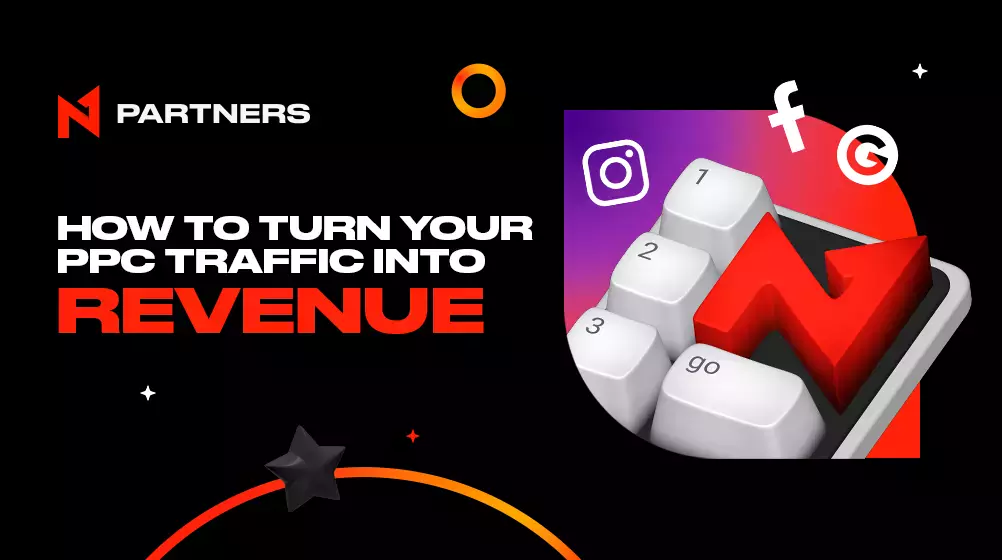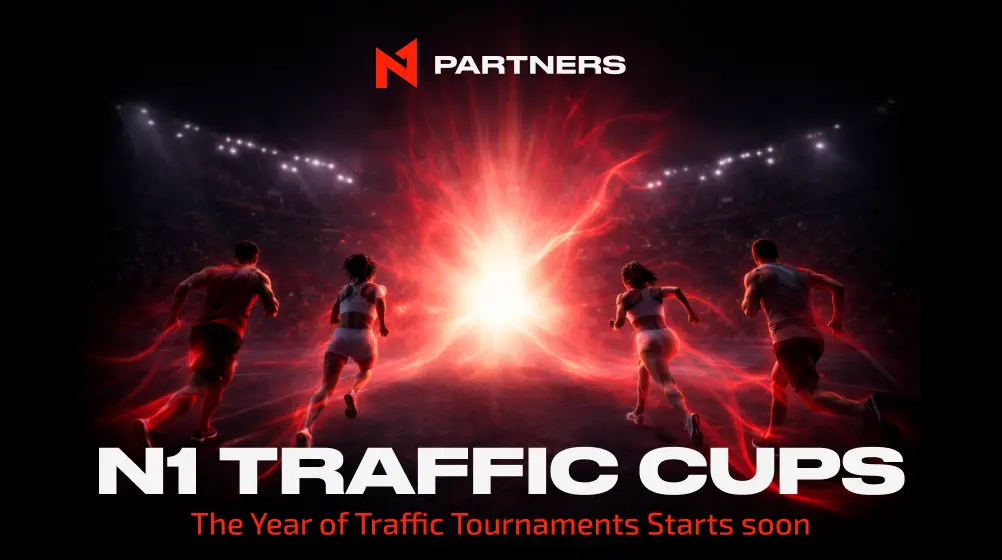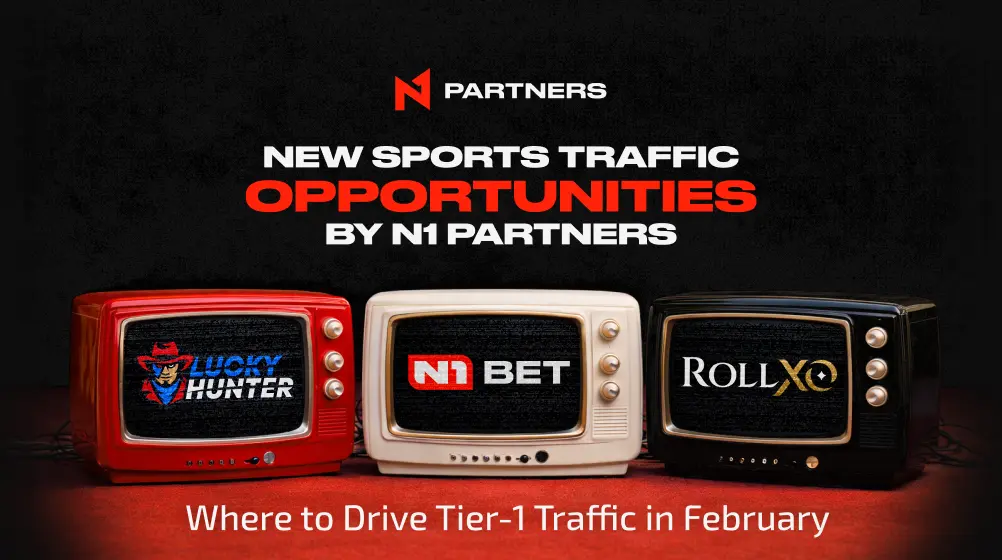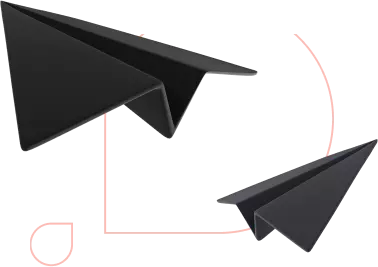January 15, 2024
Understanding PPC Traffic in the iGaming industry.

In today's article, our Head of Affiliates, Eugene, sheds light on the questions surrounding PPC traffic in the iGaming industry. Whether you're an experienced affiliate or new to PPC advertising, this comprehensive article provides valuable insights into leveraging PPC for your iGaming campaigns.
1. What is PPC traffic?
PPC, or Pay-Per-Click, is a format where the advertiser pays for each click on their ad placed on online platforms through contextual advertising providers such as Google Ads, Bing Ads, and Yahoo Advertising.
In the iGaming industry, where competition is high, the audience actively searches for information about new games, bonuses, tournaments, and of course, the casinos themselves. Search queries like ''online casino'' or ''online casino + GEO'' are still highly relevant, making the PPC traffic an effective tool for attracting users.
2. Which PPC platform is most popular for iGaming offers?
For iGaming offers, Google Ads is the leading PPC platform. It provides the widest reach of the online audience and diverse targeting opportunities. Additionally, Google Ads offers tools for precise measurement of results and campaign optimization.
However, before starting to work with an offer, it is necessary to conduct research to determine the most suitable search engine, taking into account the preferences of the GEO's target audience.
3. What advertising formats are available in Google Ads?
The advertising formats available in Google Ads include:
1. Search engine advertising. Pros: highly targeted traffic and a ''hot'' audience, leading to maximum conversion into deposits. Cons: expensive traffic - the average click cost is $10 and in some cases it can reach $100+. Huge number of competitors with their own offers.
2. GDN (Google Display Network) - advertising on partner sites. Pros: wide coverage, can engage any user, advertisement with graphic elements. Cons: lots of junk traffic, requires meticulous optimization.
3. Video advertising - e.g. on YouTube. Pros: excellent tool for branding. Cons: long cycle to registration + it's more of a supplementary channel.
4. Advertising in mobile applications. Pros: excellent optimization by Google, good performance indicators. Cons: lack of targeting settings.
There are other formats, but we are looking at the most popular ones. Each format has its own features and advantages, so choosing a specific strategy depends on your goals, target audience, and the advertising campaign budget.
4. What should be considered when planning a PPC campaign?
The foundation of planning PPC campaigns includes budget, audience, choice of ad formats, and analytics.
Keywords and the quality of the ad play an important role - the higher the quality, the higher the ad's position in the search results and the lower the cost per click due to the auction.
Also, negative keywords are an important part of PPC advertising strategy. These keywords are used to exclude the search queries that do not match advertising goals or do not bring the target audience. Do not forget to set up the analytics on your advertised resource, as this affects the internal optimization of Google.
Consumables, such as accounts, bank cards, cloaking services, proxies, and antidetect browsers, play an important role in PPC advertising.
5. How is the keyword research process conducted for PPC?
The PPC keyword research process includes analyzing popular queries, competitors, and choosing the keywords that are most relevant to the campaign's goal.
Collection of semantics and negative keywords can be done manually using the standard Google AdWords tools available during the creation of the ad campaign, and then you can collect the keywords in an Excel table. However, this method of collecting and segmenting key queries takes more time and is only relevant when there's a small number of them.
These processes can be automated with services such as Key Collector, Serpstat, Rush Analytics, PPC-Help, CloudLemma, Keywordtool, etc.
6. What are the types of keywords?
There are several types of keywords, depending on the context and goals:
- Brand Keywords: are associated with a specific brand or company and include the brand name, products, or services associated with it.
- Cross-Brand Keywords: may be related to several brands, are more general and cover a category of goods or services, not a specific brand.
- Long-Tail Keywords: these are longer and more specific keywords or phrases used for precise and targeted search.
- Generic Keywords: are the most widely used, represent general concepts or categories, may attract more traffic but have higher competition.
Also, you can experiment with adding target GEOs and specific slot or game names to your keywords. It's important not to forget about localizing keywords for the GEO where they will be displayed.
7. How are PPC campaign results measured and tracked?
It's important to set up thorough analytics so you can track PPC campaign results using metrics such as CTR (Click-Through Rate), conversions, and ROI (Return on Investment).
- Traffic data shows how users respond to ads.
- Conversion data (CTR) helps assess the effectiveness of the page.
- ROI helps assess the profitability of the advertising campaign.
The most important indicator in the end is not the volume of clicks, but their quality and product conversion - the main goal is to acquire an active user. It's also necessary to track the number of FTDs (first-time deposits) and the ratio of FTDs to repeat deposits from the player.
8. What advantages does PPC traffic provide compared to other sources?
The advantages of PPC traffic include quick start, control over budget and targeting. Among the benefits are: the topmost ''hot'' audience that can be targeted, complete traffic analytics, flexible settings, transparent payment, and budget control, as well as many strategies for different goals.
Compared to other sources such as Facebook, in-app, email, TV, etc., where ads can be shown to a random audience, PPC ads are only shown to the interested users who are intentionally searching for what they need. In other words, you only pay for targeted users.
At the same time, it's important to understand that, compared to other sources, PPC has expensive traffic and a high level of competition (not just for clicks, but also for USPs), and there can be difficulties in passing moderation.
9. So, how do you start working with PPC advertising?
To start working with PPC advertising, it is recommended to follow these steps: - Set up an analytics system. - Determine the goals of your campaign and based on them choose suitable advertising formats. - Research the audience and collect keywords. - Prepare the content - texts, images, videos, etc. - Set up your campaign and determine the budget. - Pass moderation. - Track and optimize results.
If you don't have experience in managing PPC advertising, we are always happy to help! Starting with PPC advertising can be challenging, but with the right strategy and diligence, it's a powerful tool for achieving your goals and increasing profits.
Recent news.

February 18, 2026
N1 Partners is launching a series of traffic tournaments N1 Traffic Cups – with the first one kicking off this March. Throughout 2026, partners can expect a variety of promo activities: from standalone cups to a global championship.


February 12, 2026
The conference in Dubai was a great opportunity to discuss plans for 2026 and set traffic priorities together with the N1 team. Of course, N1 Partners couldn’t leave their top partners without a surprise. That’s why the affiliate program organized an exciting gastronomic experience in Dubai – Dinner in the Sky – for the Seven Group media buying team!


February 11, 2026
N1 Partners expands its sports traffic capabilities. Betting is now available across three brands within the affiliate program’s portfolio: alongside the flagship sports product N1 Bet, RollXO and Lucky Hunter have joined the lineup.






